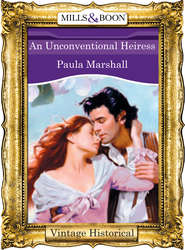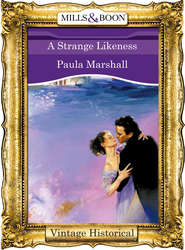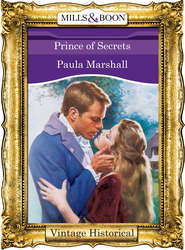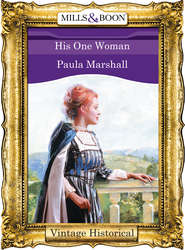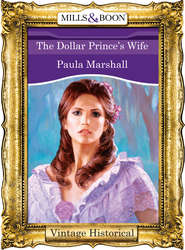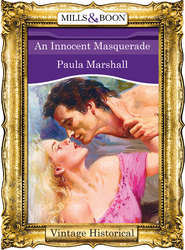По всем вопросам обращайтесь на: info@litportal.ru
(©) 2003-2024.
✖
The Astrologer's Daughter
Настройки чтения
Размер шрифта
Высота строк
Поля
O! stay and hear; your true love’s coming,
That can sing both high and low.
Trip no further, pretty sweeting;
Journey’s end in lovers’ meeting,
Every wise man’s son doth know…
What is love? ’tis not hereafter;
Present mirth hath present laughter;
What’s to come is still unsure:
In delay there lies no plenty;
Then come kiss me, sweet and twenty,
Youth’s a stuff will not endure.
Kit had kept his eyes on Celia while he sang and, when all was silent at the end, repeated, ‘Youth’s a stuff will not endure,’ not in his singing mode but low, breathily, as if he were giving her a message and they were alone in the garden, Adam and Eve together. But the serpent—where was he?
Buckingham spoke. It was to quote from Twelfth Night, the play from which the song was taken. ‘“A mellifluous voice, as I am true knight.” Well sung, Kit. Thy singing matches the wine. Matchless, Master Antiquis, like your talent—and your daughter. A toast to thee, Mistress Celia. A fairer face never adorned the court.’
There was mockery in his tone, but Adam was deaf to it. He took all as his due. This was his zenith, his apogee, to have a Duke in his garden, one of the King’s favourites singing to his daughter—for he knew of Kit Carlyon if Celia did not—wine before them and a meal waiting in his parlour, for the steward was at the garden door summoning them to eat.
Celia heard the Duke’s mockery, saw his knowing eye on her, and thought how much she preferred his friend, who had behaved so quietly, who had noted her earlier distemper, but had not refined on it to distress her. So, when Buckingham said to the steward, ‘In with you, man; Master Antiquis will accompany me and Sir Kit will take a turn around the garden with Mistress Celia before he brings her in to dine with us, for he hath a great interest in posies as well as poesies,’ she felt no fear of Kit.
She allowed him to take her arm after he had handed his guitar to his waiting servant, whose grin after Celia had walked away from him, her hand on Kit’s arm, was as knowingly insolent as only a servant’s could be.
Kit had not known what to expect when Buckingham had collected him at Whitehall. He had watched the Duke order the hampers of food to be loaded into the barge. He had laughingly told Kit to take his guitar with him to old Antiquis’s home, ‘For music undoes more ribbons and buttons than fingers do—as well you know.’
He had passed the house on the Strand many times. It was a decent place with its own curtilage. Many of the dwellings had gardens at the back. He had not accompanied the Duke to the astrologer’s before. Kit had grave doubts about astrology—he thought it a fraud and those who practised it mere tricksters.
Adam and his home had impressed him. There was a decency about it, a plainness, nothing tawdry. He had expected toads, perhaps, dried and pinned to the walls, mystic cabala—all the trappings of the charlatan—but nothing to that. Master Antiquis’s home was as grave as an Oxford scholar’s, like the rooms he remembered being tutored in that last year before the world fell in and he became a penniless rover around the principalities of Europe and the Turkish dominions.
Celia was a surprise, too. She was quite unlike Buckingham’s usual fancies. He had supposed her to be a knowing lass, sure of herself—George had told him that she was her father’s clerk. He had also called her a chaste Diana—but anyone who held him off was a chaste Diana, until she became the Whore of Babylon in his arms. Once the girl was conquered, George moved on. One day, however, Fate would play one of her tricks on him and cause him to fall desperately in love with someone quite unworthy, and leave him unable to move on—but that day lay in the future. For the present, he enjoyed life and defied it to rule him.
Yes, that grave face, the cleanly dress, the modest deportment—for there was nothing tawdry about the astrologer’s daughter; she matched his home—came as a surprise. But she was a woman and therefore to be won. What lay behind that demure mask? Could Kit Carlyon transform her to desire itself, writhing in his arms? To win her would be to win a trophy worth having, but only a cur would despoil her innocence.
Almost he cancelled the bet, handed George the ring he coveted. And then, why then, she showed the cloven hoof! Belial had laid his mark on her. The coy trance into which she had fallen was there to fetch him—or the Duke—was it not? Why, if Buckingham had but continued to pursue her, he could have had the sweet cheat for himself. Her tricks, like her father’s, were not obvious ones, but tricks they were.
What was it that Shakespeare had said? ‘Springes to catch woodcocks.’ He, Kit Carlyon, would not be a woodcock. She had given him her blind grey look and he had refused to answer it. Oh, she had known that he was there and had refused to look further. Another sweet trick.
He had sung to her and for a moment their eyes had met again. When she rose to accompany him on the Duke’s order, all in one fluid movement, her body was momentarily outlined beneath the concealing gown and he caught his breath at the sight of it. It was as purely lovely as her face with its classic profile.
But oh, he must go carefully with her. He had spoken little. To win her would need all his arts for, were he to be clumsy, as Buckingham had been, sure in his power to woo and win, he would lose her. Never underestimate a clever woman—and the astrologer’s daughter was clever.
He put out his arm for her to hold and, when she took it, there was the sweet smell of her—lavender, a country perfume for a town girl—and he led her along her garden path—to perdition and surrender, he hoped.
Chapter Two
‘A fine garden, Mistress Celia. Are you the gardener?’
Celia shook her head and said a little timidly, which was most unlike her, for she was usually controlled where the opposite sex was concerned. ‘I tend the herbs only, Sir Christopher. Our handyman, Willem, cares for the rest.’
‘The herbs?’ Kit looked about him but saw no herbs. Celia gestured towards a wicker arch, with climbing plants wreathed about it, through which a further garden could be seen.
‘If you are interested in herbs, Sir Christopher, then mine lie through there.’
‘Then I would visit them, Mistress Celia.’ And he led her through the arch to find himself in a knot garden where, instead of flowers, herbs were arranged. Along the brick wall which divided them from the next property stood terracotta urns, filled with more plants whose scents perfumed the air.
Kit bent down to pluck a sprig of thyme and sniff it before handing it to Celia. ‘You use herbs in your mysteries, Mistress Celia?’
Celia crushed the thyme in her hands before smelling it and answered him. ‘I have no mysteries, Sir Christopher, but yes, I use the herbs. Like Mistress Ginner, of whom you may have heard, I serve those women among us who need help in their sicknesses. Culpepper hath shown us the virtues herbs possess, and both my father and I believe that they possess others, yet unknown. Since the willow gives us surcease from pain and mould from many plants aids in healing wounds, may it not be that other plants have their virtues, too? It is for us to discover them and to use them as the stars direct.’ And she slipped the thyme into the small pouch which swung at her waist and walked composedly on.
Kit, from his great height, looked down on her. She was not small, he noted, but neither was she over-tall. A woman to reach above a man’s heart, he thought. And what a strange woman. She had spoken to him as soberly as though she were a scholar and he another, nothing of a woman’s traditional coquetry about her.
He answered her as he might have done a scholar. He thought that George might have failed to win her because he spoke to her lightly, as he did to all women.
‘And the plague, mistress? Do you think there might be a specific against that? A fine thing if there were.’
Celia knew, as Kit did, that the plague was abroad in London and the numbers dying from it were growing each day. From being a thing distant from the haunts of the powerful and the comfortable, like Adam and herself, it was coming disturbingly near and to catch it meant almost certain death.
‘No herbal specific of which I or my father know, but…’ Celia paused; she was fearful that he might mock her if she spoke of what her father thought he knew.
‘A “but”, Mistress Celia? What does thy “but” conceal or reveal? Pray tell me.’
Celia looked up at him. Her eyes were as grey as clear water before a storm, Kit thought. Her face as calm as that of one of the many statues of the goddess Diana he had seen in Italy. It was not a holy, but a classic calm. If he touched her damask cheek would he feel flesh, or marble?
Kit’s hand rose. He checked himself. To win his bet would be far more difficult than he had thought. To go too fast would be to lose her. She would close herself against him as she had closed herself against Buckingham. She would live in a bubble, would be seen, spoken to, but not reached—forever sealed away from him.
Would she be so for any man? Or was there some Hodge, some decent, dull merchant to whom she would surrender her treasure? Or had she vowed herself a vestal virgin to the pale moon?
His hesitation, the thoughts hastening pell-mell through his head, took but an instant of his time. Celia barely noticed his movement, or his hesitation, and said again without artifice, ‘But Father thinks that perhaps we misunderstand the cause of the thing. He says that if it is mere bad air then why does the plague so often confine itself to the poor? The air is as bad in many great houses and yet the plague most often leaves them free. He thinks that perhaps it is because the houses of the rich are spacious, and not huddled together, hugger-mugger; that instead of shutting those infected away, as the law has recently ordered in St Giles in the Fields, we ought to put them outside and let them live in the open. What is there, he also asks, that the rich do and the poor do not, which makes the difference between them? Or mayhap it is the other way around; it is what the poor do.’
She fell silent. She had spoken too long and too vigorously, but she and her father had thought much about the plague and how to contain it.
‘And the stars?’ asked Kit slyly, for he thought astrology a cheat, but would not tell the astrologer’s daughter so. ‘Why do they not tell your father where, how and why the plague works on us as it does? If they are so powerful over our destinies, that is a question which they can surely answer.’
‘That I know not,’ said Celia frankly, her brow a little troubled. ‘The stars do tell us when the plague is coming. All the charts which my father and I prepared for our almanack this year foretold its arrival, and it has come. Master Lilly, too, agreed with us. Perhaps there are things which we may not know…’
‘You dispute as well as any scholar,’ remarked Kit, fascinated by her, admiring first her full face turned towards him and then her profile, pure against the dark of the house.
‘So I have been taught,’ she answered. She had never spoken so long with any man other than her father and had not thought to spend an afternoon discoursing with one from Charles’s court. Nor had she thought that he would speak to her so gravely. Buckingham had always teased her, tried to make her talk nonsense, and had talked nonsense to her. She had no answer to that, so rarely answered him.
This man, now, was different. She stole a glance at Kit and admired his powerful face, his haughty pride, barely held in check. She knew he was proud because he bore the marks of it as the old text she had recently read had told her: ‘head high, eyes steady, mouth firm—he looks to the distant, not the near—carriage erect, voice sure’. To win his respect would be a fine thing, and already he spoke to her not as a woman to be lightly handled and then thrown away but as a fellow soul to dispute with, as he would have disputed with her father.






